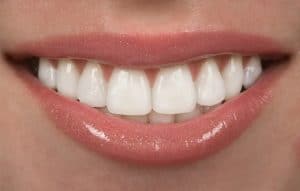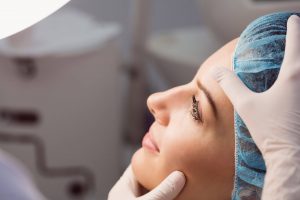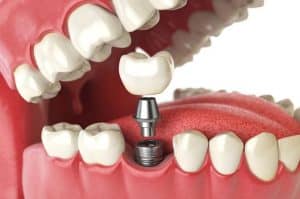Your body mass index. Your state of mind. Your oral health. Hormones are one factor that might cause all of these parts of your health to malfunction. We don’t think about hormones and dental health as a whole. So you might be shocked to find that hormonal fluctuations might make you more susceptible to gum disease.
This is why: More female hormones (estrogen and progesterone) cause more blood to flow to your gums, making them more sensitive and “overreacting” to anything that irritates them. Let’s take a look at how hormones and dental health are related.
When do Hormones Fluctuate?
Hormones and dental health go hand in hand. Changes in hormone levels make women more prone to oral health problems at five points in their lives: adolescence, the monthly menstrual cycle, when taking oral contraceptives, during pregnancy, and after menopause.
Link Between Hormones and Dental Health
Because of the particular hormonal changes that women go through, they are more susceptible to oral health concerns. Hormones and dental health are actually related more than people think. These hormonal changes impact not just the blood flow to the gum tissue, but also the body’s reaction to the toxins produced by plaque buildup. In exchange for these changes, women are more likely to acquire periodontal disease and other oral health issues during particular phases of their life.
Puberty
The first time hormones and dental health come across are when puberty hits. Teenage girls’ gums can become swollen, bloody, and red from raging hormones. (In rare situations, the gums’ reactivity to plaque may result in gum growth.) Some adolescent girls may also get canker sores, which generally cure on their own.
What is the best treatment? The best treatment for hormones and dental health during puberty is easy. You can brush your teeth twice a day with fluoride toothpaste, floss once a day and try to see your dentist on a regular basis. Our dentists will help with all of your problems, including teeth whitening.
Your Menstrual Cycle
Hormones and oral health come together again with your every menstrual cycle. You may not notice any changes in your mouth in the days preceding your period. (In truth, the majority of women do not). Hormones may be to fault if you have swollen gums, bleeding gums, canker sores, or swollen salivary glands. These symptoms should go away once your period is over, but if they don’t, your gums’ excessive bleeding indicates something else. If you have doubts about how your monthly cycle and the visible health of your gums are connected, consult your dentist. Maintain your normal oral health regimen, and if you notice increased sensitivity before or during your period, schedule some cleanings for approximately a week after it finishes.
Using Contraception Pills
Using contraception pills may cause problems with hormones and dental health. Inflammation was formerly a side effect of birth control for women, but now there’s good news for your gums. According to a February 2013 analysis published in the journal Periodontology 2000, the amounts of estrogen and progesterone in today’s birth control prescriptions are too low to create any problems with your gums.
Still, if you use birth control, ensure your health history forms at the dentist are up to date. This is why:
- Your dentist may need to issue you a prescription, and certain drugs can reduce the effectiveness of your birth control.
- If you are having a tooth extracted, you may be more prone to a painful condition known as a dry socket. 13.9 out of 100 women who used birth control suffered from dry sockets. This problem occurred in just 7.54 of 100 women who did not use birth control.
Pregnancy
During pregnancy our bodies go through a lot of things, hormones and dental health is one of the things that affect them. Your body is in hormonal overdrive throughout pregnancy. Some women develop pregnant gingivitis, a minor form of gum disease that causes red, sensitive, and aching gums. It is most frequent during the second and eighth months of pregnancy, and healthy daily practices can help keep it under control.
Visiting your dentist while pregnant is extremely essential for hormones and dental health – and completely safe. To help reduce gingivitis, your dentist may prescribe more regular cleanings throughout your second and early third trimesters. Consult your dentist if you detect any additional changes in your mouth while pregnant.
Menopause
Menopause is one of the periods of life that affects hormones and dental health. Menopause brings about significant changes in a woman’s life, including changes in taste, burning sensations in the mouth, and heightened sensitivity. However, there are two major changes to be mindful of: dry mouth and bone loss. If your mouth is feeling dry, consult your dentist.
What you eat might also make a difference in terms of dry mouth. Prevent eating foods that are too salty, spicy, sticky, or sweet, as well as dry foods that are difficult to chew. Caffeine, alcohol, and cigarettes can all exacerbate dry mouth. A humidifier running in your room while you sleep at night might also help.
What Can You Do to Prevent Oral Health Problems?
To prevent problems due to hormones and dental health, these recommendations will assist:
- Use toothpaste with fluoride at least twice a day to brush your teeth. At least once each day, floss.
- See your dentist twice a year to have a professional dental examination and cleaning.
- Consume a balanced diet.
- Steer clear of starchy or sugary foods.
- Ask your dentist if you wish to know whether you should use an antibacterial mouthwash.
- Ask your dentist about artificial saliva as a therapy option if you suffer from dry mouth.
If you have any problems with hormones and oral health, book an appointment with our office. Our dentists will satisfy all your dental health needs.
You can read our previous article from https://smileteamturkey.com/blog/babys-first-tooth/






